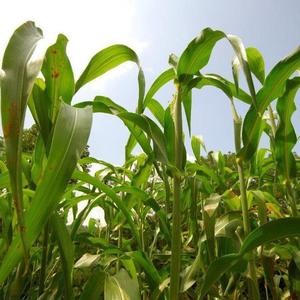New RSB standard proposed to certify low-risk ILUC biomass

May 1, 2015
BY Susanne Retka Schill
It may soon be possible to certify that biomass is not only sustainably sourced, but also considered low-risk for indirect land use change (ILUC). The Roundtable on Sustainable Biomaterials released its draft standard titled "Low iLUC Risk Biomass Criteria and Compliance Indicators."
The add-on certification module to the RSB standard for biofuels and bioproducts is based on the low indirect impact biofuels methodology developed in collaboration with World Wide Fund for Nature (WWF) and Ecofys, a sustainable energy consultancy headquartered in the Netherlands. The standards include a set of criteria and compliance indicators that producers can use to demonstrate their operations are at low risk for land use change from one of four approaches: yield increase, unused or degraded land, use of waste or residues and integrated sugarcane and cattle production.
The yield increase approach applies where feedstock producers are able to increase harvested biomass from a fixed area of land though an improvement in agricultural practices, intercropping or double cropping. The draft standard outlines the required documentation and method for determining baseline yield. In the waste and residue section, the standard outlines which waste products are permissible. For example, the producer must show the waste-stream was not used previously for electricity generation, combined heat and power or as a fertilizer or soil input. The section on sugarcane and cattle integration is still under development.
Advertisement
Advertisement
The new standards, aimed primarily at the European Union regulations for sustainable biomaterials, were released April 29 for review and will be finalized at the RSB general assembly meeting June 1 in Geneva.
"This new low iLUC standard will allow certain producers to show they generate biofuels crops which do not impact food production," said Rolf Hogan, RSB's executive director.
Advertisement
Advertisement
"We are pleased to publish these proposals for comment, as the European Parliament recently accepted the ILUC amendment, which includes provisions for low-ILUC biofuels."
RSB brings together a diverse coalition of over 100 organizations around the world, including large and small farmers, companies, nongovernmental organizations, experts, governments, and UN agencies. RSB certification verifies sustainable production methods are being followed by participating companies, including greenhouse gas emission reductions, respect for human rights, protection of biodiversity and water and maintenance of food security.
Related Stories
The USDA significantly increased its estimate for 2025-’26 soybean oil use in biofuel production in its latest World Agricultural Supply and Demand Estimates report, released July 11. The outlook for soybean production was revised down.
The U.S. Energy Information Administration maintained its forecast for 2025 and 2026 biodiesel, renewable diesel and sustainable aviation fuel (SAF) production in its latest Short-Term Energy Outlook, released July 8.
XCF Global Inc. on July 10 shared its strategic plan to invest close to $1 billion in developing a network of SAF production facilities, expanding its U.S. footprint, and advancing its international growth strategy.
U.S. fuel ethanol capacity fell slightly in April, while biodiesel and renewable diesel capacity held steady, according to data released by the U.S. EIA on June 30. Feedstock consumption was down when compared to the previous month.
XCF Global Inc. on July 8 provided a production update on its flagship New Rise Reno facility, underscoring that the plant has successfully produced SAF, renewable diesel, and renewable naphtha during its initial ramp-up.
Upcoming Events










